
As mountain conditions continue to deteriorate due to record high temperatures in the European Alps, Jean-Marc Peillex, mayor of Saint-Gervais-les-Bains - the administrating commune in which Mont Blanc is situated, shared with Courmayeur - has closed the Tête Rousse and Goûter huts on the mountain's popular normal route in an effort to deter climbers.
Mr Peillex also announced a tongue-in-cheek proposal to make climbers pay a €15,000 deposit to cover rescue and funeral costs in response to increasingly heavy rockfall occurring mostly in the Grand Couloir — also known as 'Death Gully', an accident hotspot.
In July, local guides stopped working on the route and authorities strongly encouraged climbers to seek alternative objectives as high temperatures increased instability in the couloir.
In a statement, Mr Peillex said that the warnings and withdrawals from the route had done little to discourage climbers, claiming that around 50 "pseudo-alpinists" had since attempted the route in what the mayor called "a game of Russian roulette."
On 30 July, a group of climbers wearing shorts and trainers were told to turn around before the Goûter Couloir by members of the local rescue team, the PGHM, who circled above in a helicopter with a loudspeaker.
"Even if they turned around, they said that they would come back the next day!", Mr Peillex said in a statement. "Their stupidity forces me to show authority and to sign a decree to close the Tête Rousse and Goûter huts, after consultation with the prefecture and the President of the Saint-Gervais guides."
The order became effective from 5 August and the refuges will remain closed until further notice. "How sad to be forced by a few lawless spoilsports to take a decision that should not need to be taken," his statement reads.
Although the normal route is not currently "banned", the closure of the huts is a de facto closure given the safety quota-driven requirement for climbers to pre-book accommodation if not ascending the mountain in a day.
On 18 June, scientists measured a record high temperature of 10.4°C at Col Major (4,750m) near the summit of Mont Blanc (4,807m).
A video shared widely on social media shows rocks trundling down the Goûter Couloir on 4 August following weeks of scorching temperatures in the region.
Chute de pierres dans le couloir du Goûter jeudi 04 août La Mairie de Saint Gervais a décidé d'un arrêté de fermeture des refuges de Tête Rousse et du Goûter à partir de ce vendredi 05 août jusqu'à nouvel ordre pic.twitter.com/VjaJa6v6BR
— RadioMontBlanc Infos (@RedactionRMB) August 5, 2022
Mr Peillex's €15,000 pre-climb deposit proposal was widely reported as an genuine measure in mainstream media. However, in an email, Mr Peillex told UKC that a deposit would be almost impossible to legally enforce, and that his comment was more an attempt to create a media buzz, "to respond "idiotically" to the "idiots" who continue to defy death and the recommendations."
"From a legal and practical point of view, such a measure is very difficult to put in place, if not impossible — it is more the reaction and awareness that is anticipated," he added. "These suicidals cannot leave with death in their backpacks without the whole world knowing that their recklessness has consequences: In terms of risk for the rescue workers, and financially (the average cost of a rescue is €10,000 and the average cost of a funeral €5,000)."
Mr Peillex appealed for longer-term solutions to minimise the risk of death on Mont Blanc and on other popular routes as climate change increases objective dangers in the Alps.
"Instead of believing that we will be able to reverse the climatic changes decided by the masters of the universe, instead of thinking that the situation only concerns 2022, we must take strong, adult and adapted measures," he told UKC. "Namely, by no longer practising certain climbing routes, parts of the mountain (i.e. stop teasing the demons or playing with fire) in periods determined in consultation with mountain professionals and at the same time bringing forward and extending the mountaineering season (May, June, September, October)."
This shift should also impact the timing and duration of lift access to particular mountains in high-risk periods, Mr Peillex said.
"It's certainly a revolution," he added. "But it's time to do it."
***
Mr Peillex has long been a vocal proponent of tighter regulation of western Europe's highest mountain - which attracts 15,000-20,000 summit attempts annually - linking overcrowding, ill-equipped climbers and charity stunts to an increase in deaths and rescue call-outs.
More than 100 people have died on the Goûter Route in the past two decades. Over the years, Mr Peillex has threatened to permanently close the Goûter refuge.
His campaigns have divided climbers and outdoor enthusiasts, many of whom believe the mountains should be a place of freedom without excessive rules or restrictions.
In 2017, the mayor signed an arrêté municipale (local by-law) enforcing a minimum equipment and clothing list to be adhered to by anyone attempting the mountain via the Goûter Route (PD). The following year, quota restrictions were imposed on the mountain, stating that a maximum of 214 climbers per day with pre-booked accommodation at the Goûter hut would be granted access by a "brigade blanche" patrolling the peak.
In a UKC interview in 2018, Mr Peillex commented: "Mont Blanc is stormed up by many climbers but also by pseudo-mountaineers whose attitude and practices are disrespectful of the natural environment, basic rules of safety and also of laws and regulations enforced by the state."
In September 2018, Mr Peillex wrote a letter to President Macron imploring him to take action in protecting the mountain environment, with an emphasis on managing Mont Blanc.
Two years later, in October 2020, the communes of Saint-Gervais-Les-Bains, Chamonix and Les Houches signed a prefectoral order to create a protected area consisting of 3,175 hectares, and within this zone non-emergency camping or bivvying on or near the Goûter route became forbidden and roped teams restricted to a maximum of three people.
Mr Peillex's proposals for restricting access to the mountain have regularly conflicted with the opinions of mayors and authorities in Chamonix and Courmayeur, who have long supported the ongoing bid for Mont Blanc's UNESCO World Heritage status.
He has cited concerns of overtourism, pollution, increased property prices in the St Gervais commune and a lack of adequate protection for Mont Blanc, should the mountain receive UNESCO status. "Access today is not regulated because the state and some "politicians" want to believe in the idea of an area of freedom in order to protect a very lucrative business for the few (travel agencies...)" Mr Peillex told UKC in 2018.
The mayor favours the introduction of a permit system on Mont Blanc's normal route. In the UKC interview, he said: "In all of the important tourist sites in the world, there are systems of quotas and controls (North American National Parks, Nepal, Kilimanjaro, Everest ... the Ardèche gorges, the Cassis creeks). They also exist for planes, museums etc. Why should an overcrowded route escape this, and who is having trouble controlling it?"



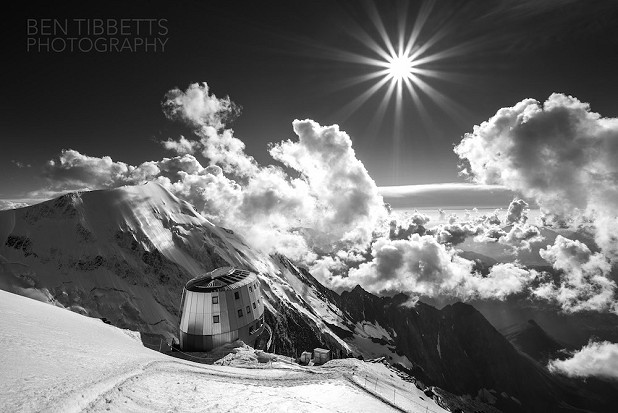




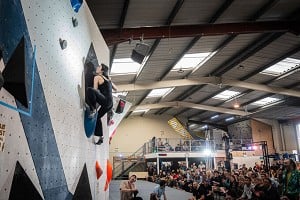



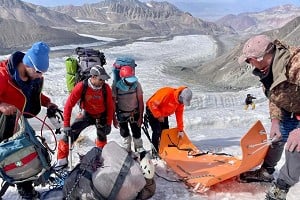
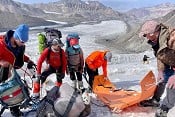
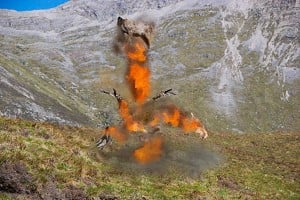
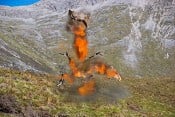
Comments
Let's transfer this to N Wales: A Snowdonia National Park Authority spokesperson said: "Snowdon is stormed up by many climbers but also by pseudo-mountaineers whose attitude and practices are disrespectful of the natural environment, [and] basic rules of safety..." So let's close the Crib Goch ridge - or introduce permits.
The SNPA spokesperson said: "In all of the important tourist sites in the world, there are systems of quotas and controls (North American National Parks, Nepal, Kilimanjaro, Everest ... the Ardèche gorges, the Cassis creeks). They also exist for planes, museums etc. Why should an overcrowded route escape this, and who is having trouble controlling it?"
Its interesting that he talks of extending the season and suggests the lift access could run earlier. The lifts not running out of the regular season (historically) would be a disincentive to many but if they start them earlier then maybe we should just re-adjust when we climb there?
I've not climbed in the European Alps since 2017 and it was in a pretty alarming state then and have been thinking I might have to go in May or June next time.
It's changing very quickly. I'm not sure simple going earlier quite works, or at least not in the sense that June is the new August. Snow doesn't consolidate quicker than historically, nights are still short etc
I think you have a very skewed judgement of risk of you think that's in any way a fair analogy.
Unfortunately, the status of Mont Blanc as the highest peak in Western Europe means it can attract certain groups of climbers ("pseudo-climbers"?) who for various reasons, including the Dunning-Kruger effect, overestimate their own abilities and underestimate the objective hazards and risks of the route. Given that the sole aim of these groups is to stand on the summit, it seems reasonable to close an extremely hazardous route but leave open other routes that present fewer objective hazards (although require slightly more technical ability). None of that is true for, or bears a resemblance to, Crib Goch.
Yes, perhaps what is happening is that the transition from winter to summer conditions is just happening faster but going when the temperatures are colder and there is more snow cover must be safer even if its harder work. Less chance of benightment in June than August as well.
I've climbed in the Alps in May a couple of times and it certainly was harder work, lots of breaking trail and precarious corniced snow crests (and not many lifts). On the other hand, if more people went earlier there would be more chance that someone had broken the trail for you!